Giant TCR Advanced SL 0 Disc review
The Giant TCR Advanced SL 0 Disc is an absolute speed machine and offers a thrilling ride but it's less comfortable than its top end competitors
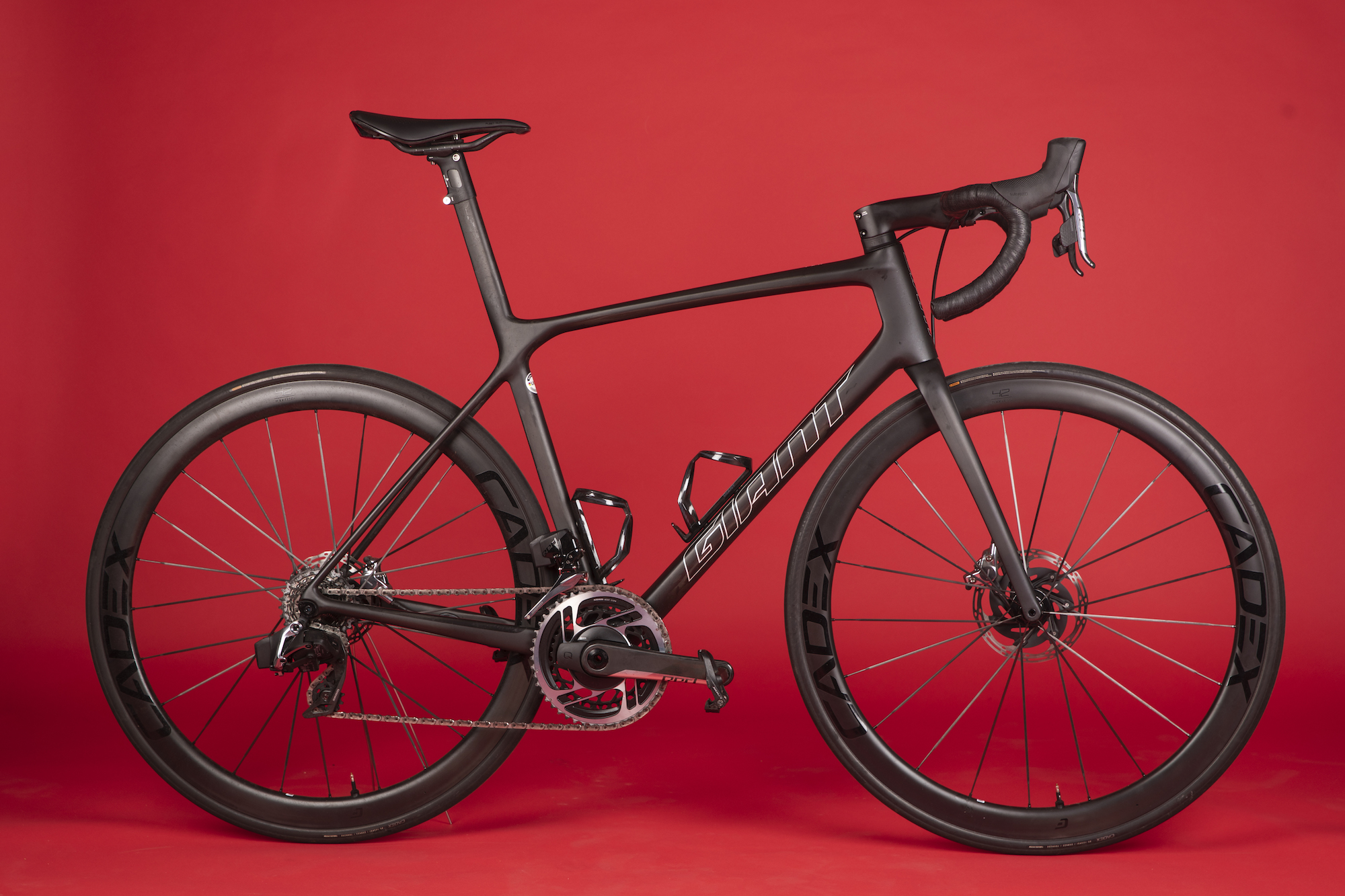
The Giant TCR is brilliantly fun to ride and it's a offers up an explosion of pace that'll leave you grinning ear-to-ear. However its incredible stiffness does come with a reduced level of comfort, especially compared to other top end models.
-
+
Fun and agile ride quality that'll have you sprinting everywhere
-
+
Great spec
-
+
Compact frame design is as superb as ever
-
-
Harsher than competitors
You can trust Cycling Weekly.
While many bike brand's frame designs have changed radically over the years, there's one that hasn't: The Giant TCR. Back in the mid-1990s it disrupted the status quo, bringing mountain bike style sloping geometry to the road.
Since then you'd be hard pushed to find a top end carbon fibre race bike with a top tube that doesn't slope to some extent, although the TCR remains the most radically angled.
>>> Giant bikes: range explained
Since the 1990's the bike has undergone many iterations which have seen its tubing shapes and bottom bracket size updated - but the TCR is still built to the same compact frame triangles as the very first model and that remains true in this latest update.
Stiffer, lighter and more aero
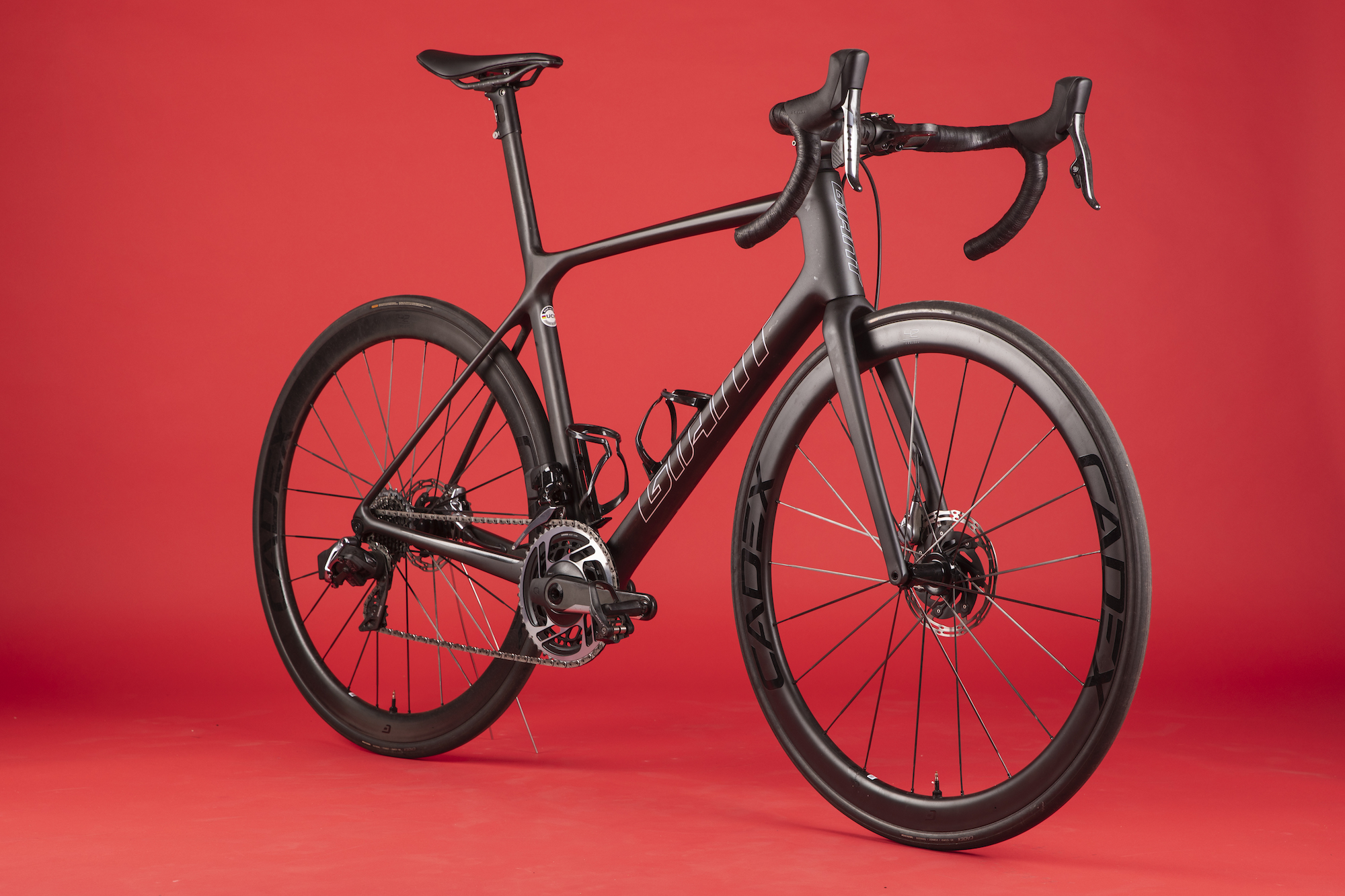
Although the modern bike is similar to the original in its looks, much of Giant's considerable R&D time and money was spent giving the new bike an aerodynamic facelift without a radical shape shifting.
The latest race content, interviews, features, reviews and expert buying guides, direct to your inbox!
The frame now features flat back tubing profiles across the front end, including its head tube and forks, as well as ellipse shaped tubing elsewhere. These are learnings from the Propel that Giant claim makes the TCR seven to eight watts faster than the previous model.
Considering that dropped seat stays have consistently formed part of a narrative around making lightweight bikes more aerodynamic it's unusual to not see them front and centre on the new TCR. However, the bike's sloping top tube effectively hides them, and if it was the same angle as other bikes then the stays would be dropped. Either way, I'm pleased to see a brand recognise its iconic frame rather than pursue something that might be considered more 'modern'.
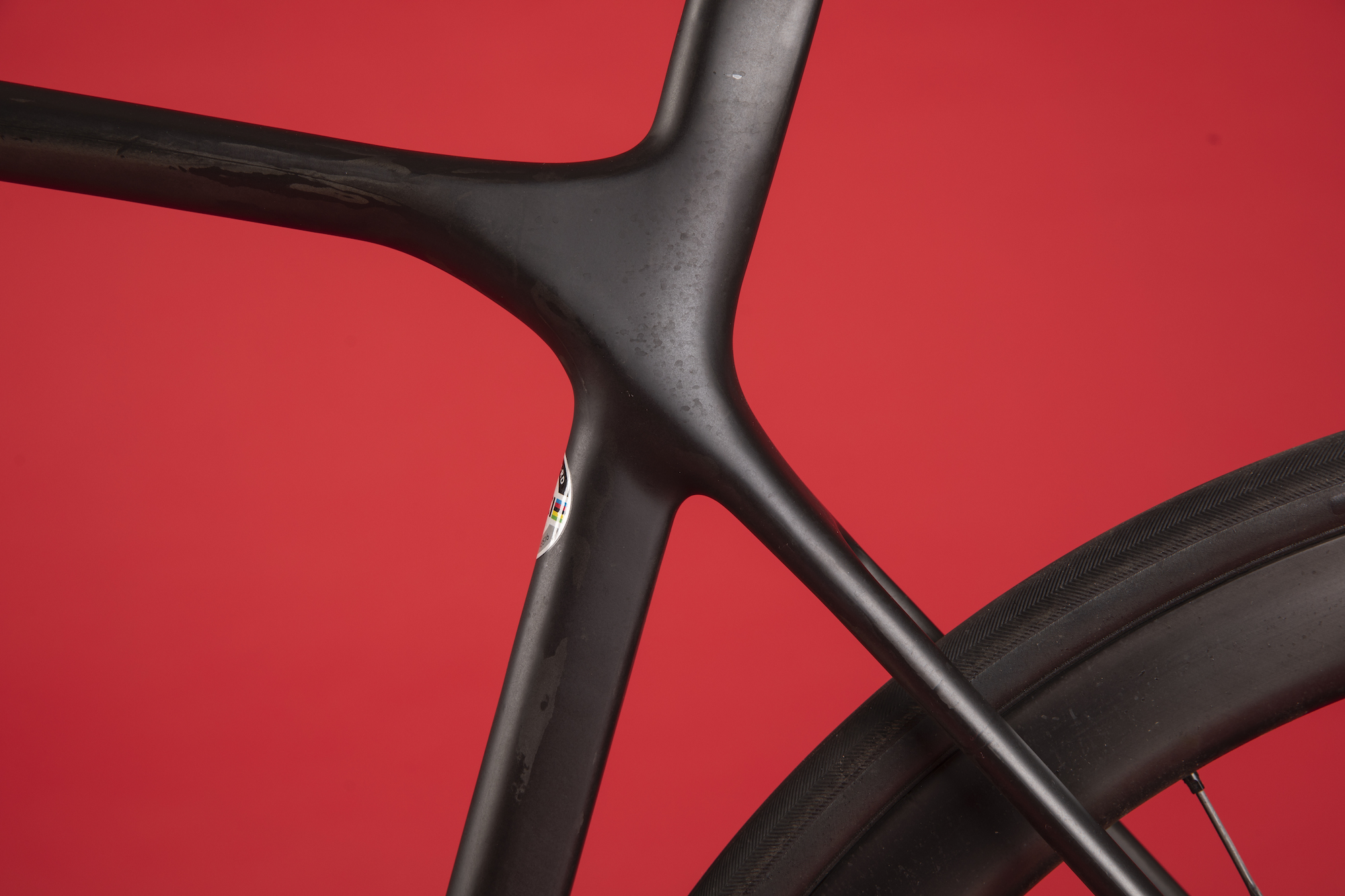
Besides, Giant were keen to stress they could still provide enormous benefits without needing to change the TCR's iconic shape. Many of these were in the bike's manufacturing process, including a new robotic layup assembly that allowed the carbon to be placed in an ultra-precise way as well as a new Thinline finishing technology that meant it could cut 65g of weight in paint on this top end model. In total, the bike weighs in at a svelte 6.6kg, which is comfortably in the super bike weight category.
Watch: Komoot Tips and Tricks
Measure twice, cut once
At the top end, Giant has continued its one-piece frame and seat post design that boosts the bike's stiffness. It does mean that you need to be confident in your bike fit because, as anyone who's messed up with the hacksaw can attest, once you've cut there's no going back.
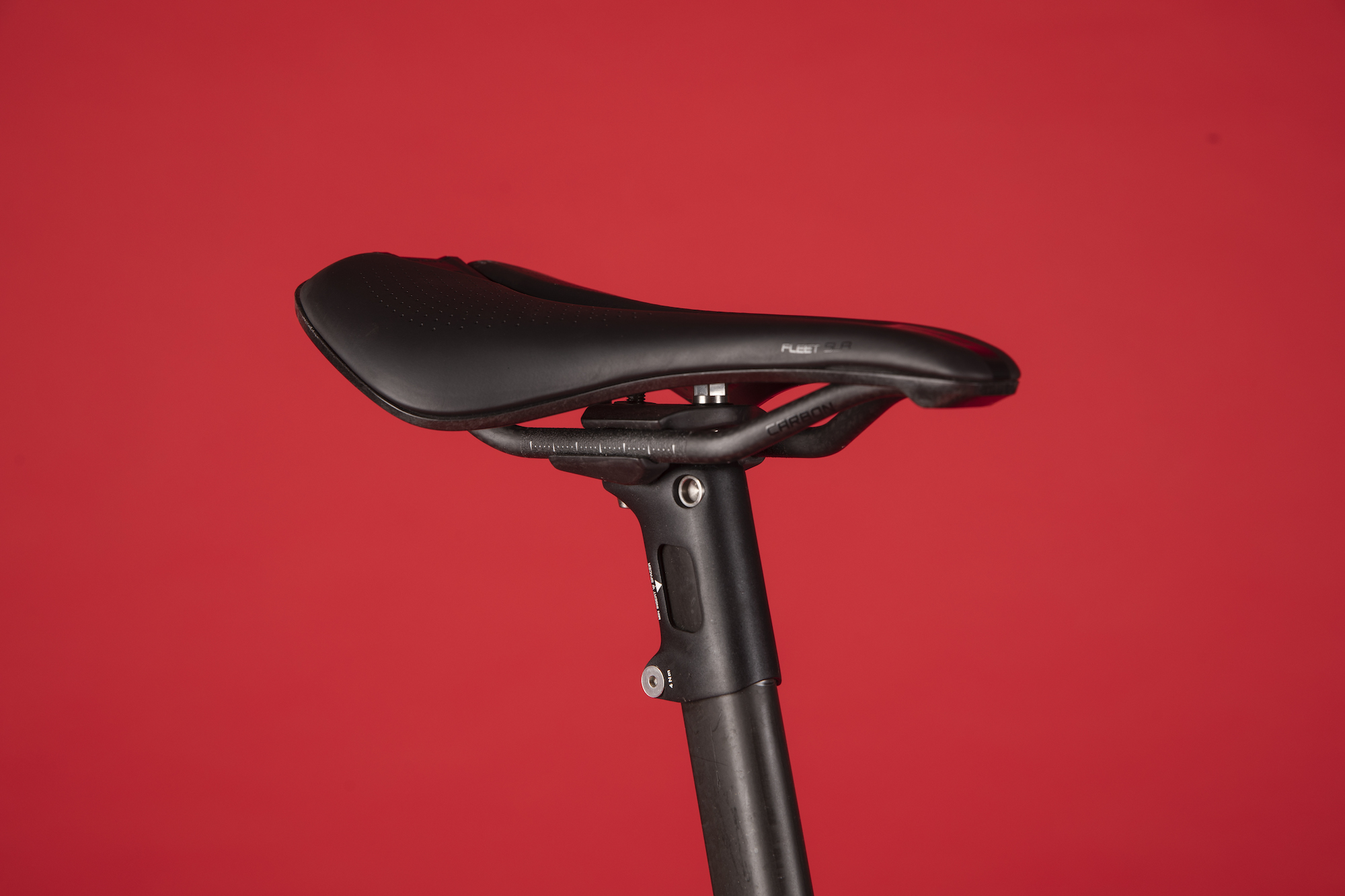
Despite the bike fitting me absolutely fine, the thought of it still gives me the jeepers, and I can see this putting customers off.
As legendary bike fitter Phil Burt put's it, bike fit is not a set of specific co-ordinates but more a window - where exactly you sit in your ideal window varies depending upon your condition (flexibility and strength) at any given time - and these factors change throughout your life. Your bike fit might stay the same for a few years, but as a long term investment, I'd want some room to shuffle.
Giant does now offers different length seat clamps with the bike so you can fine tune your fit - but this only allows for either 25 or 45 mm of movement, depending on which clamp you choose.
Grin inducing speed
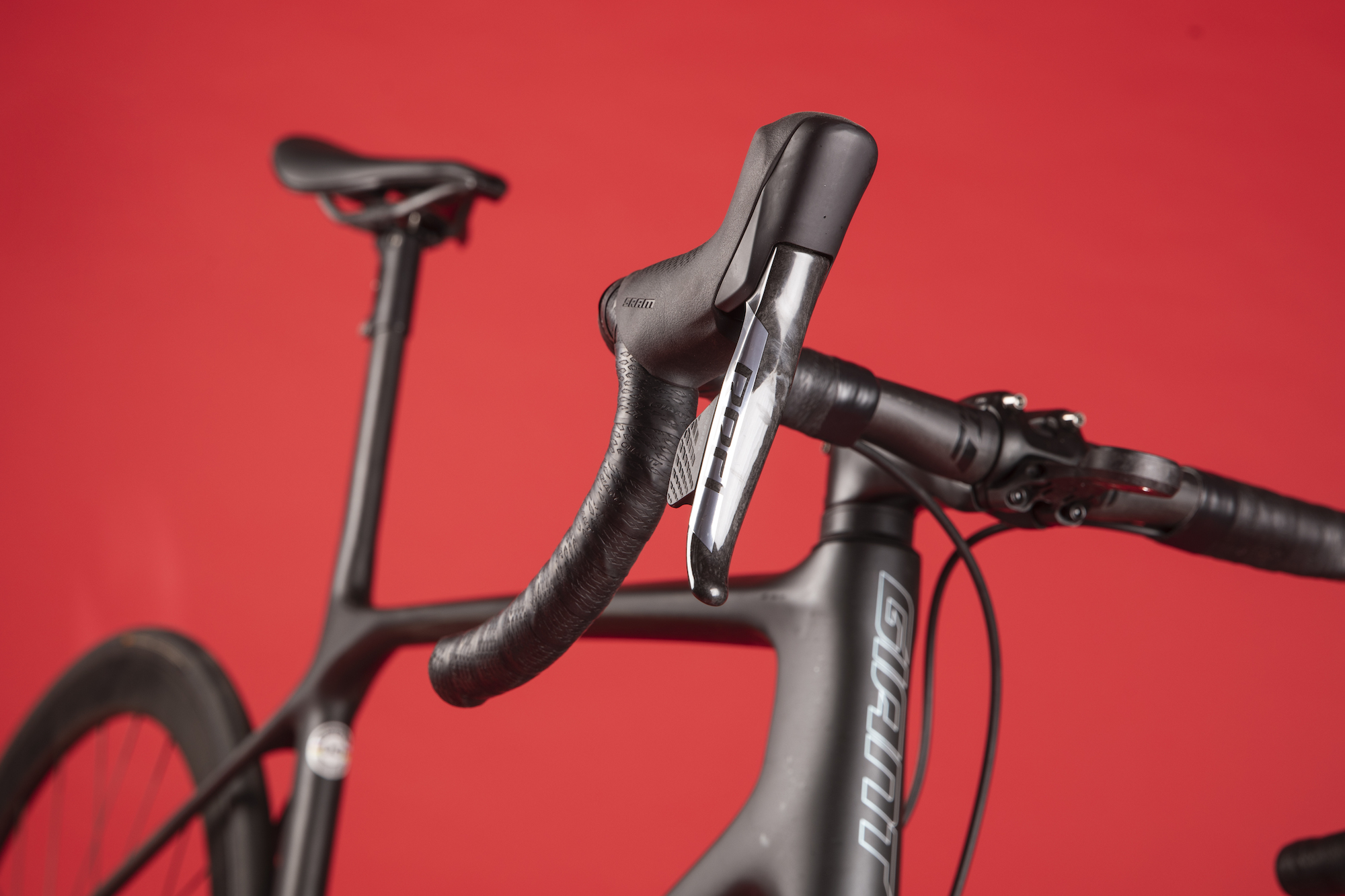
All of the adaptations and changes have given the Giant TCR Advanced SL 0 Disc a ride quality more akin to an aero bike than a modern lightweight bike. The frame is uncompromisingly stiff, stiffer than other competitors that I've ridden such as the the S-Works Tarmac SL6.
H0wever, the TCR's frame also doesn't benefit from the same numbing affect as the Tarmac and instead, its ride quality is much more coarse and more rigid. You'll feel the bumps and buzz of the road and hitting pot holes is particularly ache inducing, and over long distances these hits start to build up.
The bike's stiffness does translate into immediate speed, though, and the blistering pace it affords is grin inducing. The combination of smaller frame triangles, larger tubing shapes and modulus carbon means that forward momentum comes with such ease on the TCR that you catch yourself sprinting everywhere. It feels incredibly efficient and on one 120km ride I was able to average a pace of 28km/h despite the hilly route - that's faster than similar attempts on the same loop, mostly because I just felt I was able to aboard the TCR.
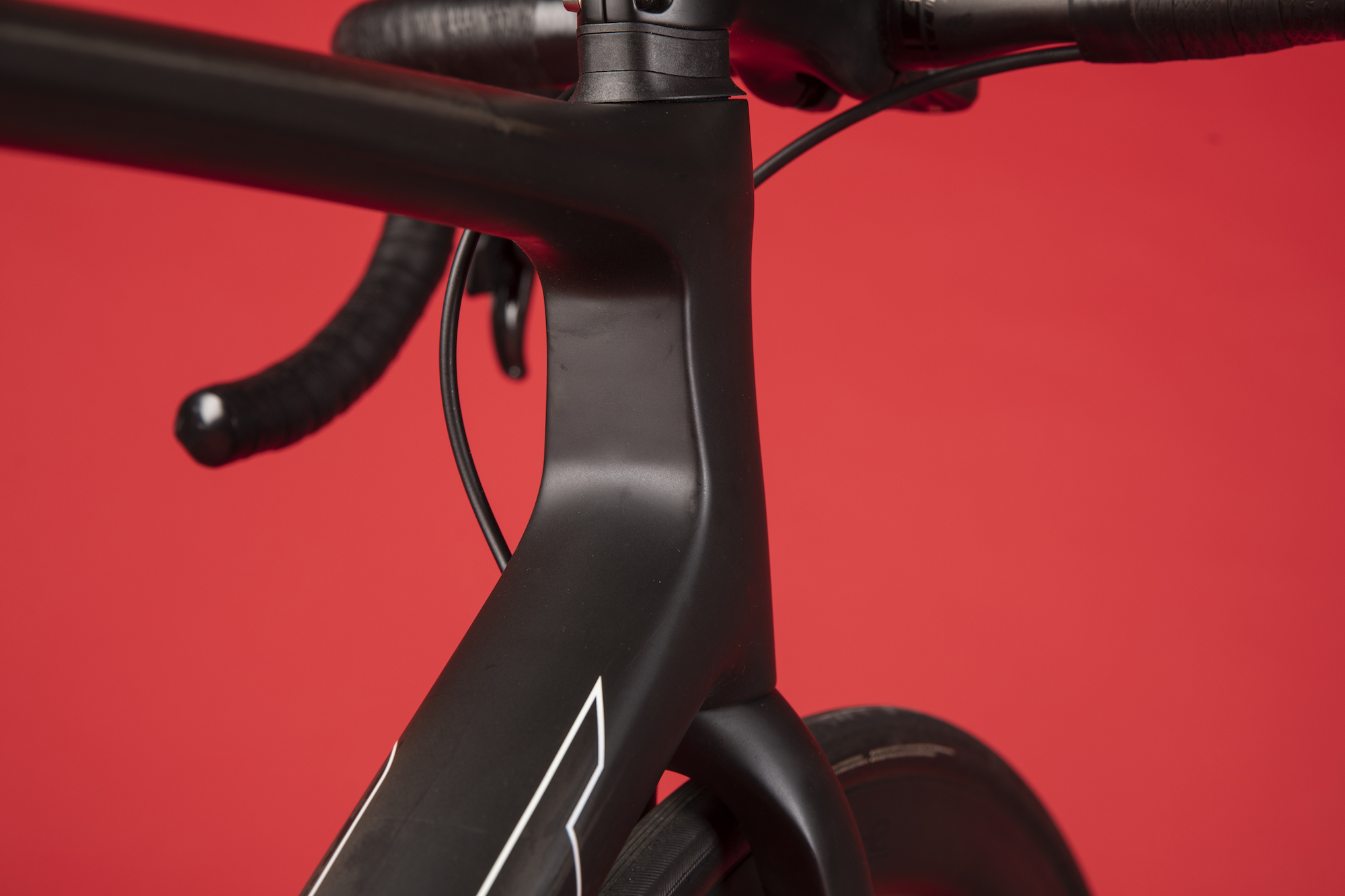
On the whole the bike's handling was precise, the Overdrive steerer boosts the front end stiffness and makes it receptive to minute adjustments of direction. Occasionally, when travelling along the flat at speed I experienced some small amounts of speed wobble. It usually presented itself when I got out the saddle for a quick push to climb a rise or to stretch my legs. I suspect that this has something to do with the bike's light weight and my shifts in weight, it isn't something I've experienced on other race bikes, though.
Cadex wheels and parts
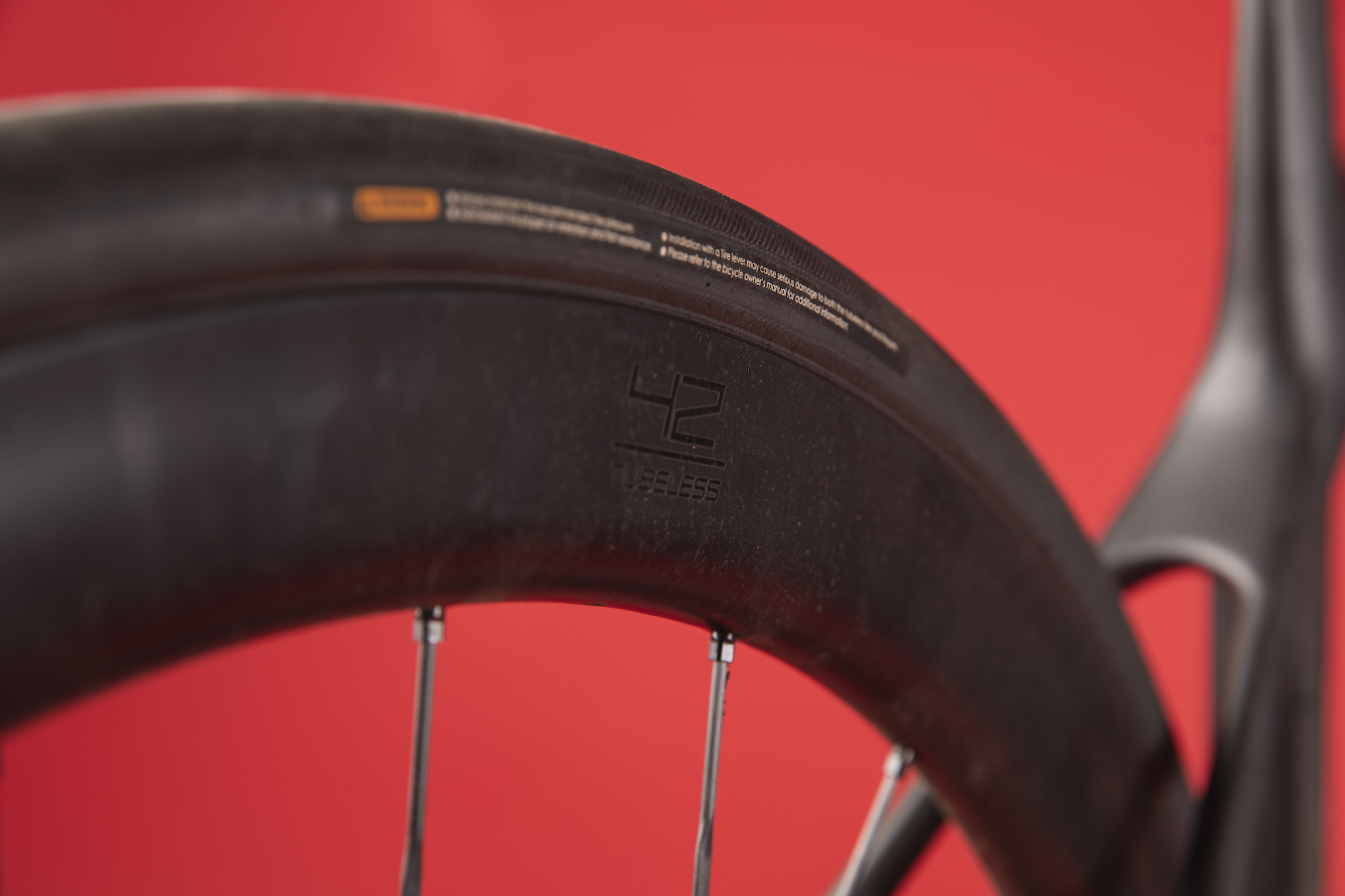
The Giant TCR Advanced SL 0 Disc runs on a set of its sister company's Cadex 42mm Disc wheels, which are themselves new with this bike.
They're hookless, which means that they're only compatible with a tubeless tyre and aren't for use with clinchers – the lower weight and slimmer profile outweigh the loss of versatility, according to Giant. As is the case with all of Giant's carbon bikes, the TCR Advanced SL 0 Disc ships with tubeless tyres - Cadex Race 25 tyres - set up and ready to go.
It's not unusual for a top end bicycle to ship with its sister company's wheels and if anything Giant's latest Cadex wheels are something of a flex from the global giant. They're 42mm deep and use a new carbon composite. They feature crossed spokes of different lengths and tensions to reduce flex and Giant even made the hubs in its own factory, although, unlike competitors from Roval, they don't ship with ceramic bearings but steel ones.
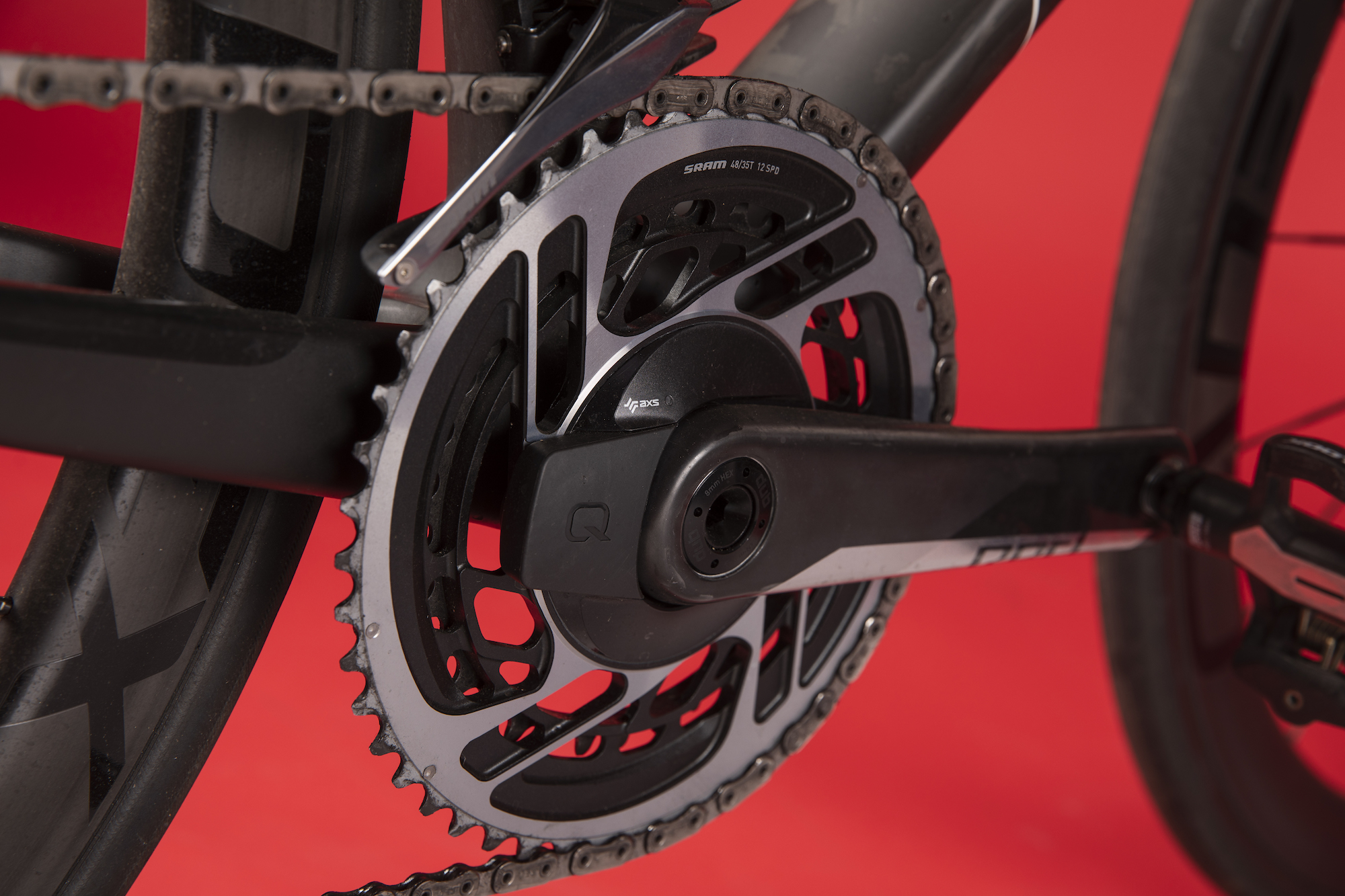
We've been impressed with Giant's in house wheel range and that looks set to continue with these Cadex offerings that rolled comfortably well above 32km/h, completing the efficient package that is the TCR.
Outside of Cadex and Giant, which spec every other part of the bike, is SRAM's Red eTap AXS groupset. The 48/35 chainring, which is a 52/36 Shimano equivalent, partners really well with the extend range on the cassette and I found it to be easier on the legs than Shimano's counterparts. The bike also comes with a Quarq power meter which has been superb for the duration of my testing.
Giant TCR: Final thoughts

If I had just under £10,000 burning a hole in my pocket, would I buy this bike? Honestly, no. It's a really impressive bike; lightening quick, incredibly efficient and undoubtedly an out-and-out race bike that will leave you grinning at its raw speed. But it's also less comfortable over 100km than many other top end bikes I've tested and features a fixed seat post that I don't think any number of bike fits would leave me feeling comfortable about.
However, Giant's new TCR range is expansive (it even includes complete build rim-brake bikes), and you could get up a TCR Advanced Pro 0 Disc for £4599 with Shimano Ultegra Di2 and an adjustable seat post. I'll be looking to test one asap, so watch this space for updates.